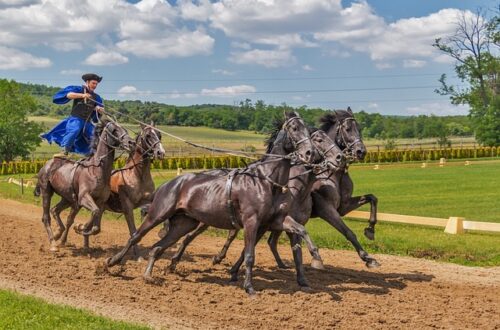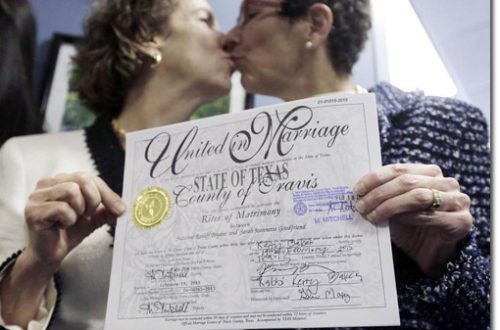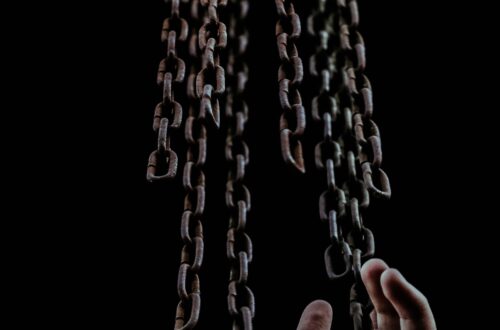Making Sense of Postmodern Politics
Princeton theologian Diogenes Allen has said that we are living in the midst of a “massive intellectual revolution” that is perhaps as great as that “which marked off the modern world from the Middle Ages.” And it’s changing much faster than ever before and more deeply than we realize.
Princeton theologian Diogenes Allen has said that we are living in the midst of a “massive intellectual revolution” that is perhaps as great as that “which marked off the modern world from the Middle Ages.” And it’s changing much faster than ever before and more deeply than we realize.
The world around us is changing from modern to postmodern.
From a world where we hold certain truths to be “self-evident,” where reasonable people can agree on what is true and just and good, to a world where there is no truth that’s true for everyone. Politician A has his truth claims. Politician B has his truth claims. Who knows what is true? I focus on my personal truth and reality. Truth is what works for me.
It’s almost as if the personality of our culture is changing. (If you are familiar with the Myers Briggs personality inventory we are a modern culture of ESTJ’s shifting to a postmodern culture of INFP’s.)
One way our cultural personality is changing: Sensing to intuiting. How do we gather information about a candidate? A modern cultural sensibility is more oriented toward sense perception. Toward seeking concrete, hard data. I value what I can see with my eyes, hear with my ears, touch with my fingers, measure in a lab. I read voter guides and see where the candidates stand on the issues.
Postmodern cultural sensibilities are more Intuitive than Sensing. Trusting other ways of knowing rather than what we can know empirically, through sense experience. Trusting knowledge gained through what CS Lewis called imagination…knowledge, especially knowledge of meaning gained by myth, symbol, pictures, dreams and metaphor. I trust someone (or not) by hearing their story. I trust knowledge gained through a person I trust.
Another way our cultural personality is changing: Thinking to Feeling. How do we decide whom to vote for?
The defining characteristic of the modern world (from the Enlightenment) is that we filter all of life through the mind. Through reason and logic. Making a voting decision (or any decision) is a search for clarity. Understanding. How do you make decisions? You gather data on the candidates’ plans and proposals and submit it to logic and reason to come up with the answer.
A postmodern person makes decisions more by feeling than thinking. The pendulum is swinging hard in reaction to the modern over-emphases on thinking to what many believe is an over-emphasis on feeling. Valuing the emotional impact of experience rather than the clarity of logic and understanding. I don’t want to know so much data on what your positions are, I want to know your story–what you have experienced.
Since postmodern voters are more likely to gather information intuitively and be moved by an appeal to emotions how do we see the campaigns responding?
They are shortening up their appeals to data and evidence. Spending less time making a case and more building empathy. Credibility based on expertise is not as important as likability built on empathy.
I think this is why, although the economy is in the tank, President Obama is still in this year’s presidential race. Instead of being perceived as a young man who attended an elite prep school, college and law school, which he did, he has popularized a story of a young black boy who lost his father and grew up struggling financially, which he also did. His personal charisma and charm, his “coolness” help voters like him and connect with him in this intuitive, experiential way.
The Republican convention tried to help voters build empathy with Romney by talking about his struggles and the ways he has helped people in need. They gave the microphone to those very people who told their stories in moving, Technicolor detail.
Bill Clinton was the first presidential candidate who really understood how to appeal to a postmodern audience. “I feel your pain,” he is famous for saying. I remember watching the Democratic convention playing a video of his life, “The Man from Hope.” (Hope, Arkansas, his home town) As I watched the sad stories and the strong emotional appeals it struck me, for the first time, that the election was becoming increasingly like the (very) old TV series, “Queen for a Day,” where three women told their hard-luck stories and the one with the saddest story and most tears won a new washing machine. George Bush Senior, a man of modern sensibilities, could not fathom how Americans could elect someone who did not embrace military service. Someone who was dogged by stories of marital infidelities. But Bill Clinton was/is extremely likable and empathetic. And he won.
Whether in politics or church ministry, many of us want to go back to the “good old days” where we took the modern approach of focusing on facts rather than stories, issues rather than empathy. (Honestly, I am slowly making the modern to postmodern transition myself.) The danger is that the cultural pendulum will swing too far—too much intuition and feeling in elections (and ministry), not enough facts, evidence and reason. The glory of God is man fully alive—both head and heart.
Our challenge is not to be swept into the drama of the stories and appeals to empathy to the exclusion of the issues. God calls us to engage our reason and feel deeply.
More in my next blog on how to make sense of postmodern politics.


